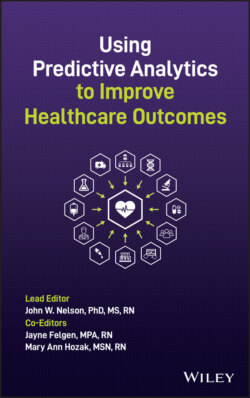Читать книгу Using Predictive Analytics to Improve Healthcare Outcomes - Группа авторов - Страница 37
2 Advancing a New Paradigm of Caring Theory
ОглавлениеJohn W. Nelson and Jayne Felgen
A paradigm is a model or example of a way to view things. New paradigms seek to deliver new truths. This fifteenth century concept was applied to social sciences by Kuhn in an essay which proposed that new models and ways of thinking in science are always rebuffed by traditional views until a convincing argument is provided through careful assemblance of the new theory into a model (1962). Models for social and psychological constructs are built on observations and beliefs. Sometimes these observations and beliefs are discussed among scientists who then may conduct research, using models, to study the veracity and validity of these observations and beliefs.
The notion that “caring contributes to healing” is a paradigm held closely by people in various disciplines in healthcare, and it is the very core of the profession of nursing (Lazenby, 2017). This chapter discusses the paradigm that caring contributes to healing, and it describes a number of frameworks of care delivery that seek to operationalize and systematize caring behaviors and to promote, support, and nurture caring in all relationships in healthcare. Nursing has done an excellent job of generating caring theories and frameworks of care delivery, but a poor job of creating an argument rooted deeply enough in verifiable data and scientific rigor to convince the broader scientific community that caring contributes to healing. This book makes a scientific argument that caring does indeed contribute to healing. This chapter reviews the theories and frameworks that have been tested throughout this book. Watson's Theory of Transpersonal Caring (2008a) is the predominant theory of caring science, and Relationship‐Based Care® (Creative Health Care Management, 2017; Koloroutis, 2004) is the predominant framework of care. However, there are other caring theories and frameworks of care that are reviewed in this book as well.
A special note is made here about the framework of care called the Caring Behaviors Assurance System© (CBAS), because it is the framework of care for which there currently exists the most specified measurement instruments to capture the overall effectiveness of its implementation and outcomes and thus the argument that caring contributes to healing. Chapters 17 and 18 provide a thorough description of CBAS as well as a review of how its effectiveness has been successfully measured. It will not be reviewed in detail in this chapter on theory and frameworks because it is so thoroughly reviewed later and because earlier case studies in this book are taken from organizations using other frameworks of care.
